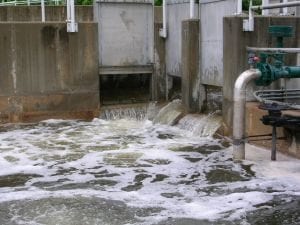Tanzanian scientists are busy exploring an affordable and innovative technology for treating and reusing wastewater for agriculture.
Scientists are exploring constructed wetlands as a way to treat wastewater. The constructed wetland is a 0.6 m deep pool filled with different sized limestone or gravel and vegetation like Phragmites grasses. Contaminants are filtered as debris from septic tanks seeps into the limestone and microorganisms in the soil destroy disease-causing organisms and pathogens when the water reaches the wetland plants’ roots.The project is currently funded by the Tanzanian Commission for Science and Technology in Tanzania (COSTECH). Prof Jamidu Katima from the College of Engineering and Technology at the University of Dar es Salaam told Tanzania Daily News that this technique addresses water scarcity and shortage of fertilizers in agriculture.
Water standardisation ponds are currently used to treat waste water in Tanzania. These are shallow lagoons built in series where raw sewage is treated by natural processes involving algae and bacteria. According to academics, constructed wetlands ponds offer an eco-friendly option of secondary treatment of wastewater. This allows it to be used for fish farming or recycled for other human uses. Health experts monitor the quality of both fish living in the ponds and agricultural produce to ensure they don’t pose health risks to humans.






